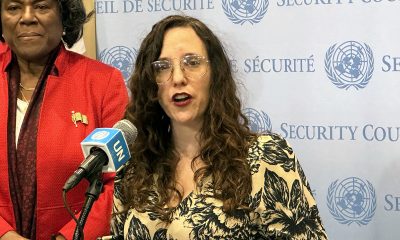World
Out in the World: LGBTQ news from Europe and Asia
Russian Supreme Court declared global LGBTQ rights movement ‘extremist’

NEPAL
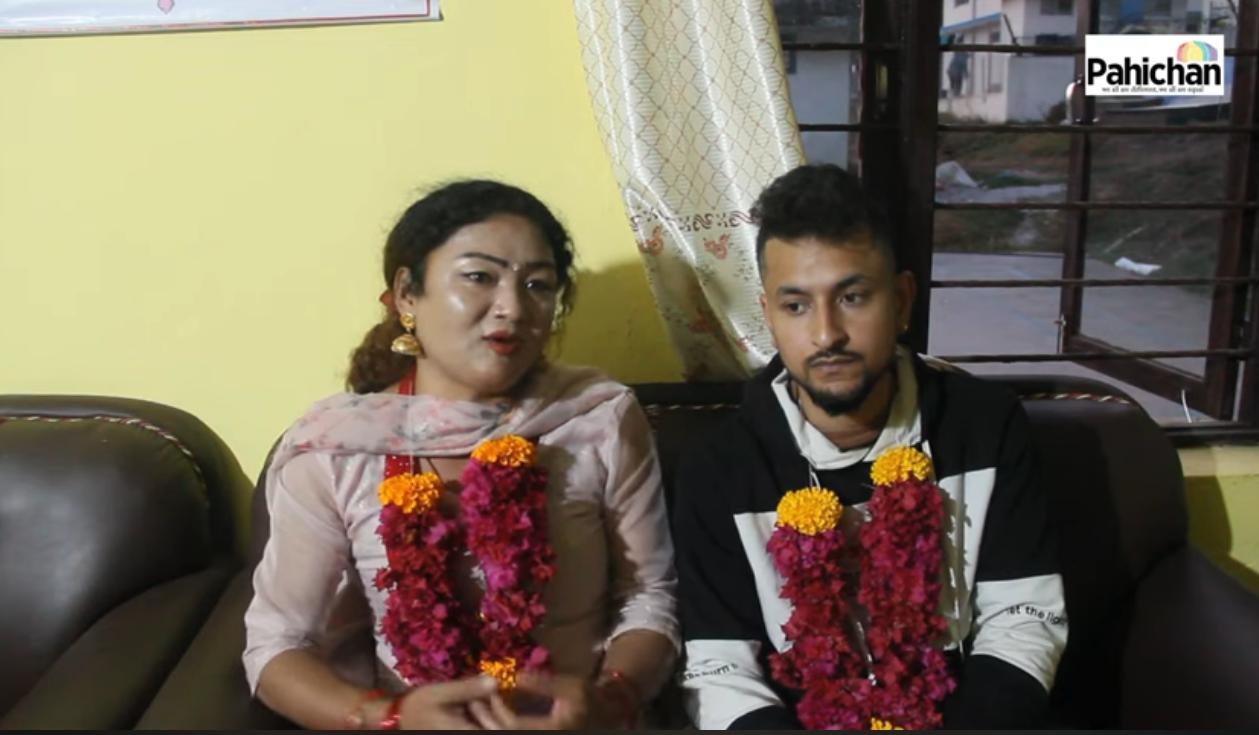
The marriage between Maya Ram Bahadur Gurung and Surendra Pandey this past week in the Nepalese capital city of Kathmandu is being hailed by the country’s LGBTQ rights activists. Gurung, a transgender woman and Pandey, who is gay, was registered by the local municipality ward office four months after the Himalayan nation’s highest court legalized same-sex marriages in an interim order.
Sunil Babu Pant, the former executive director/CEO and founder of the Blue Diamond Society, first LGBTQ rights organization in Nepal, who has also served in the country’s parliament was present for the civil ceremony telling the Associated Press: “After 23 years of struggle, we got this historic achievement, and finally, Maya and Surendra got their marriage registered at the local administration office.”
In a later interview with Naya Prakashan news Pant noted. “A wedding in Nepal today can become the signpost in South Asia for a more equal tomorrow.”
Human Rights Watch reported that Gurung, a trans woman who is legally recognized as male, and Pandey, a cisgender gay man, held a Hindu wedding ceremony in 2017. They first attempted to legally register their marriage in June this year at the Kathmandu District Court, following an interim order by Nepal’s Supreme Court instructing authorities to register same-sex marriages while considering a case that argues for marriage equality across the country.
When that court rejected their registration, saying it did not need to recognize a couple that was not one legal male and one legal female, they appealed to the Patan High Court in September.
But the high court judges rejected the appeal, saying that it was the responsibility of the federal government to change the law before the lower authorities could register such marriages, HRW reported.
Nepal’s civil code currently only recognizes marriages between one man and one woman. The Supreme Court attempted to rectify that by ordering the creation of an interim registry for nontraditional marriages until parliament changes the law. The two lower courts then reversed the logic by claiming that the national law must be changed first.
MALAYSIA
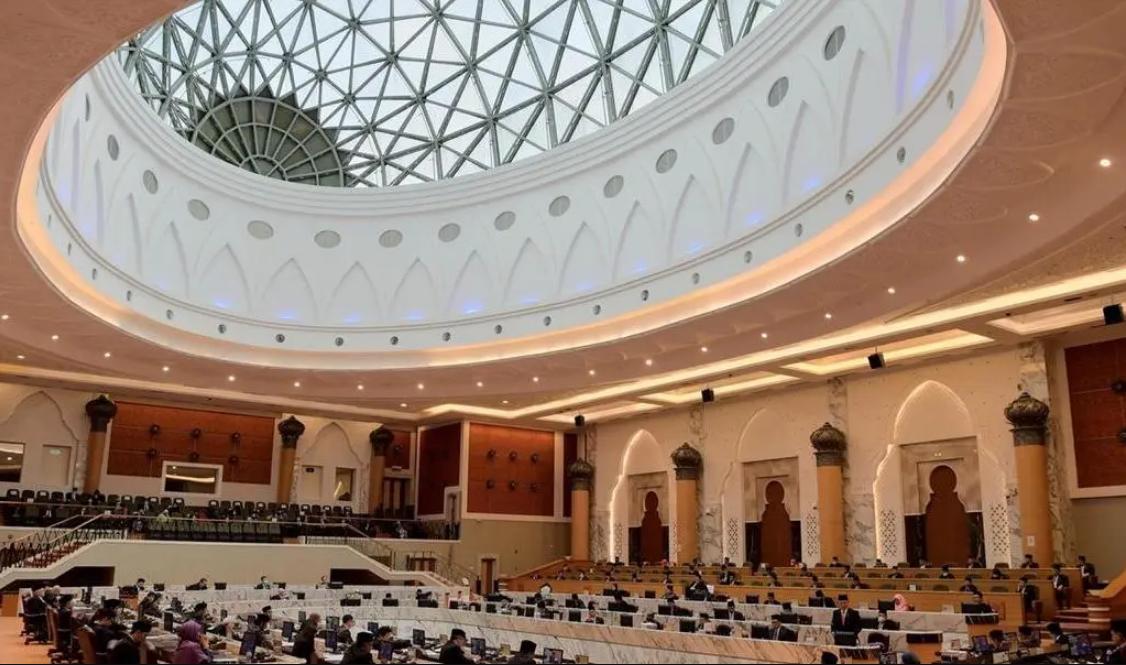
Malaysian LGBTQ rights activists are decrying efforts by the Johor state government to establish a “rehab” center for “people in same-sex relations,” which would use the globally debunked conversion therapy to change sexual orientation.
Malaysian society is predominately Muslim and conservative. Human Rights Watch has noted that the government authorities in the Malay Archipelago are willing to enforce the rigid gender roles by which they compel all Malaysians to abide with few exceptions.
Speaking at the Johor state assembly on Wednesday, the state’s Islamic Religious Affairs Committee Chair Mohd Fared Mohd Khalid said 400,000 ringgit ($86,000) has been allocated for the rehabilitation center, which was expected to open in July next year the South China Morning Post reported.
“This rehabilitation center is established … for them to get back on the right path,” Fared told the assembly.
Aside from same-sex individuals, Fared proclaimed that the centre would also house “those who are deemed deviant” from the state-prescribed religious Islamic orthodoxy, which includes the Ahmadiyya Muslim Community and Baha’i among some 42 groups, the state’s religious affairs body has identified as “deviant.”
The Malaysian government relies on the force of law to prohibit expression and conduct that fall outside of a heterosexual, cisgender norm. It is one of only a handful of countries that explicitly makes gender nonconformity a criminal offense.
Reacting to the rehab news, Justice for Sisters, a trans rights group, told the South China Morning Post that detaining people was a violation of the Malaysian Constitution, which safeguards personal liberty, privacy, dignity, equality and prohibits discrimination on the basis of gender.
“Detaining people on the grounds of changing their SOGIE — sexual orientation, gender identity and gender expression — amounts to torture without a doubt,” said the group’s spokesperson, Thilaga Sulathireh.
Malaysia also criminalizes consensual same-sex conduct at both the federal and state levels. Its officials frequently insist that the laws criminalizing lesbian, gay, bisexual and trans people are intended not primarily to punish, but rather to return them to “the right path,” statements echoed this past week by Johor’s Islamic Religious Affairs Committee chairman.
Human Rights Watch notes that officials under successive Malaysian governments have typically coded their approach to sexual and gender diversity in a logic of “prevention” and “rehabilitation,” backed by the threat of punishment. Former Prime Minister Muhyiddin Yassin, who was in office between March 2020 and August 2021, described LGBTQ people as a threat to Islam, backed by “foreign influences” and a “disorder” that requires counseling.
THE VATICAN

Pope Francis this past week further disciplined another American prelate, retired Cardinal Raymond Burke, who has publicly critiqued Francis over the pope’s ongoing efforts for reforming the Catholic Church, especially over issues centered on LGBTQ Catholics and the LGBTQ community.
The Associated Press reported that Francis revoked Burke’s subsidized Vatican apartment and retirement salary, according to sources because he was a source of “disunity” in the church.
The move is “unprecedented in the Francis era,” Christopher White, a Vatican observer who writes for the National Catholic Reporter, told the BBC.
“Typically, retired cardinals continue to reside in Rome after stepping down from their positions, often remaining active in papal liturgies and ceremonial duties,” he said. “Evicting someone from their Vatican apartment sets a new precedent.”
Burke, who spends much of his time in the U.S. at the Our Lady of Guadalupe shrine he founded in his native Wisconsin, has not yet been notified of the pope’s actions according to the AP.
At the end of October, the pope convened a month long conference, known as a Synod of Bishops, followed an unprecedented two-year canvassing of rank-and-file Catholics. During the conference Jesuit Fr. James Martin, a popular spiritual author and editor of the LGBTQ Catholic publication Outreach, noted that on LGBTQ issues, “There were widely diverging views on the topic,” he said.
In early November, Bishop Joseph Strickland of Eastern Texas was “relieved” of his position as head of the Diocese of Tyler by Francis after Strickland’s refusal to resign in a dispute over the church’s LGBTQ inclusion in Catholic practices. Strickland often had echoed Burke’s positions.
Although retired in 2014, Burke had an incredibly anti-LGBTQ public record since, especially in vocalizing his opposition to plans to be inclusive of the LGBTQ community. Burke was once a high-ranking U.S. archbishop and head of the Apostolic Signatura, the Vatican court, but was repeatedly demoted under Francis and then forced to retire.
In March 2020, Burke laid blame on the coronavirus pandemic on the LGBTQ community. As churches were forced to close during the lock-downs ordered by health officials, Burke wrote:
“Worship is particularly needed now because of ‘how distant our popular culture is from God,’ he wrote, noting abortion and euthanasia, then attacking the LGBTQ equality movement, particularly activism for recognition of trans identity.
“‘We need only to think of the pervasive attack upon the integrity of human sexuality, of our identity as man or woman, with the pretense of defining for ourselves, often employing violent means, a sexual identity other than that given to us by God,” he said. “With ever greater concern, we witness the devastating effect on individuals and families of the so-called ‘gender theory.'” Burke went on to say, “There is no question that great evils like pestilence are an effect of original sin and of our actual sins.’”
Burke once compared lesbian, gay, and bisexual people to murderers.
UNITED KINGDOM
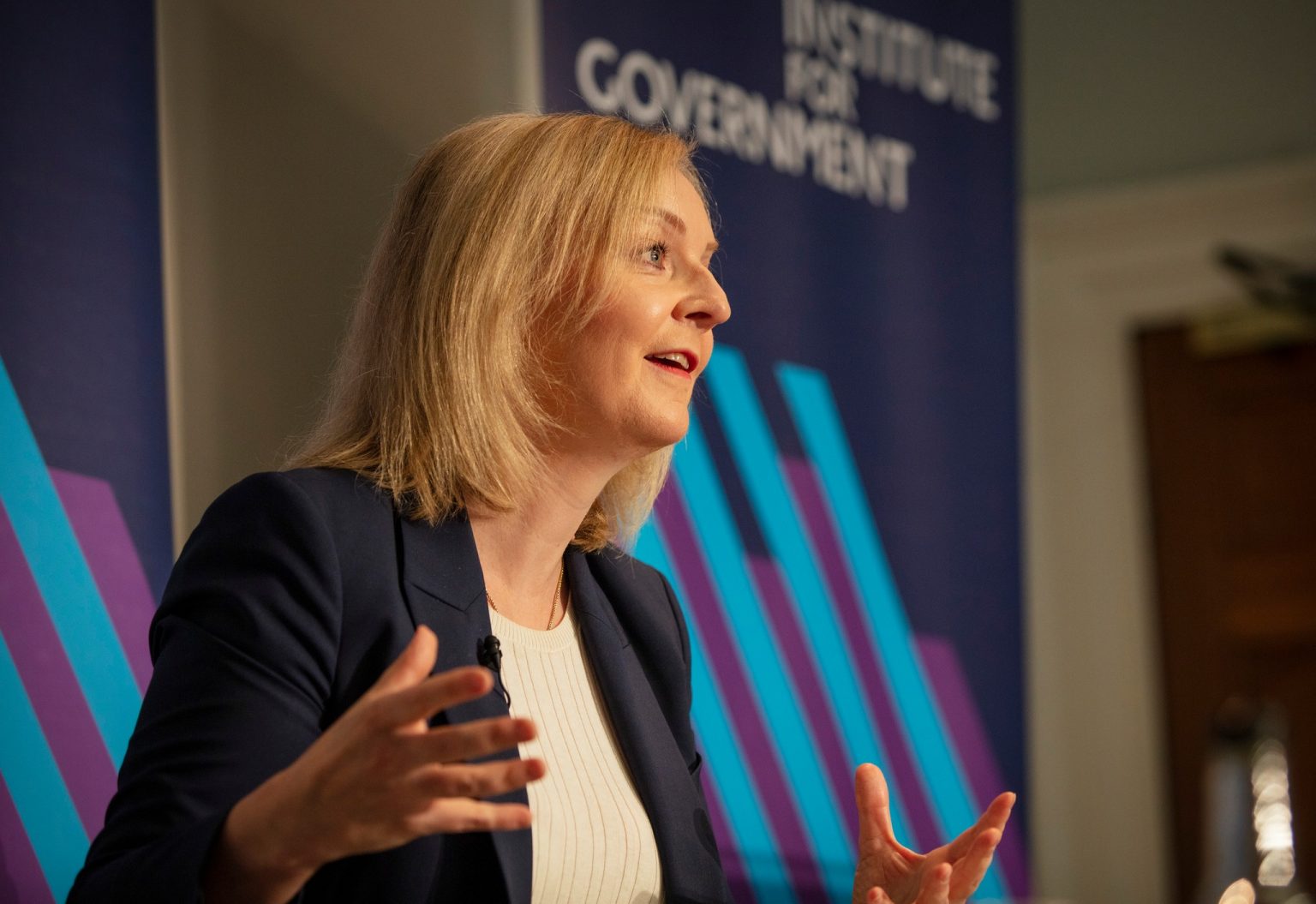
Former British Prime Minister Liz Truss is said to be backing a private bill to be introduced into the House of Commons that will ban minor children under the age of 18 from accessing hormone therapy and block the National Health Service and the UK government from recognizing their social transition.
After Truss was one of 20 backbencher MPs to be selected to bring forward a bill, a source reportedly said she chose the legislation because she believes under-18s need to be protected from “making irreversible decisions about their bodies.”
PinkNewsUK pointed out that argument fails to consider the fact that trans under-18s are typically prescribed physically reversible puberty blockers and are only permitted to do so after lengthy medical checks.
Physically reversible puberty blockers are also typically only given to teenagers over the age of 16. It is exceptionally rare for under-16s to be prescribed puberty blockers.
Despite this, Truss is expected to formally present the bill on Wednesday during a House of Commons hearing where its MP backers will also attend, PinkNewsUK also reported.
A spokesperson for the UK government said in a statement: “This government is clear on the fundamental importance of biological sex.”

A magistrate’s court found a 51-year-old man guilty of a hate crime in an assault on Drag Race UK star The Vivienne this past June at a local McDonald’s. Alan Whitfield told the court that he had struck James Lee Williams, aka The Vivienne, in the face claiming that his actions were not motivated by homophobia but by what he described as “banter.”
During his testimony, 31-year-old Williams said he was subjected to a “barrage of abuse” from Whitfield after entering the fast food restaurant PinkNewsUK reported.
“He [Whitfield] carried on, then after the fourth ‘look at the state of you’ I said ‘look at the state of you’, I said ‘look at the state of your face’, to which he said ‘I’ve got skin cancer’ and then punched me straight in the face.”
PinkNewsUK reported that the RuPaul’s Drag Race UK star, who took home the crown in the first series in 2018, argued that the attack was motivated by homophobia because there were “countless other people” in the McDonald’s at the time.
Whitfield maintained throughout the proceedings that the assault “was nothing to do with him [Williams] being gay,” reiterating that he has LGBTQ members of his family.
After court deliberation, Justice Anthony Canning said that Whitfield’s evidence was “not credible.”
“Having considered this incident from beginning to end, we believe beyond reasonable doubt that the hostility shown by yourself from that outset was motivated and down to the perceived sexuality of the complainant and this was homophobic in nature.”
Whitfield will be sentenced in January.
IRELAND
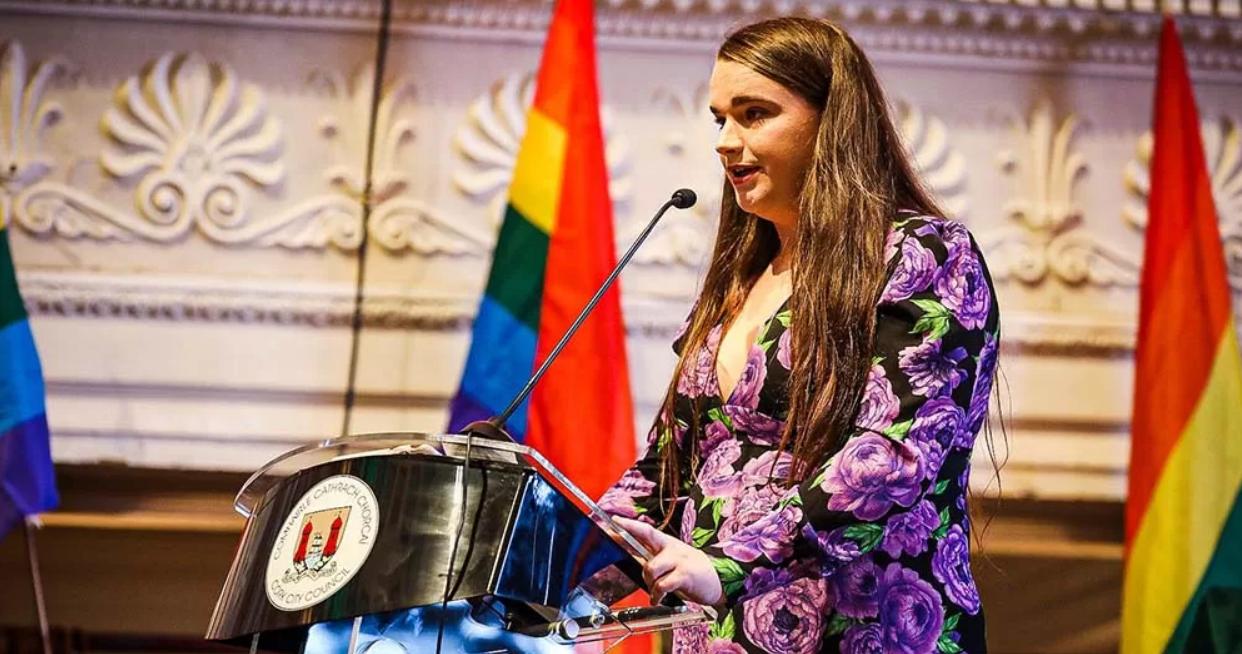
A 25-year-old second year law student at the University College Cork is set to make history the first openly trans person in history to run for local election in Ireland.
Saoirse Mackin, who co-founded Trans+ Pride Cork in 2022, was nominated by the Social Democrats to run in Cork City North West’s 2024 election. Mackin, who transitioned in 2017, told LGBTQ+ media outlet GCN – Ireland, that if elected, one of her top priorities will be eliminating the excessive healthcare barriers that are in place for trans women in Ireland.
Mackin also advocates for better cycling infrastructures, as well as affordable housing and improved public services GCN noted.
She said, “If elected, my priority areas will include the provision of more affordable housing, improved public services, universal access to healthcare and the development of quality cycle infrastructure in Cork. I will also campaign for better local amenities, such as upgraded parks, green spaces, playgrounds and sports facilities.”
In addition to being a trans activist, Mackin is also a law student and community organiser who has bravely spoken up against the growing far-right movement in Ireland. She was also named in the Irish Examiner’s 100 Women of 2022 list.
RUSSIA
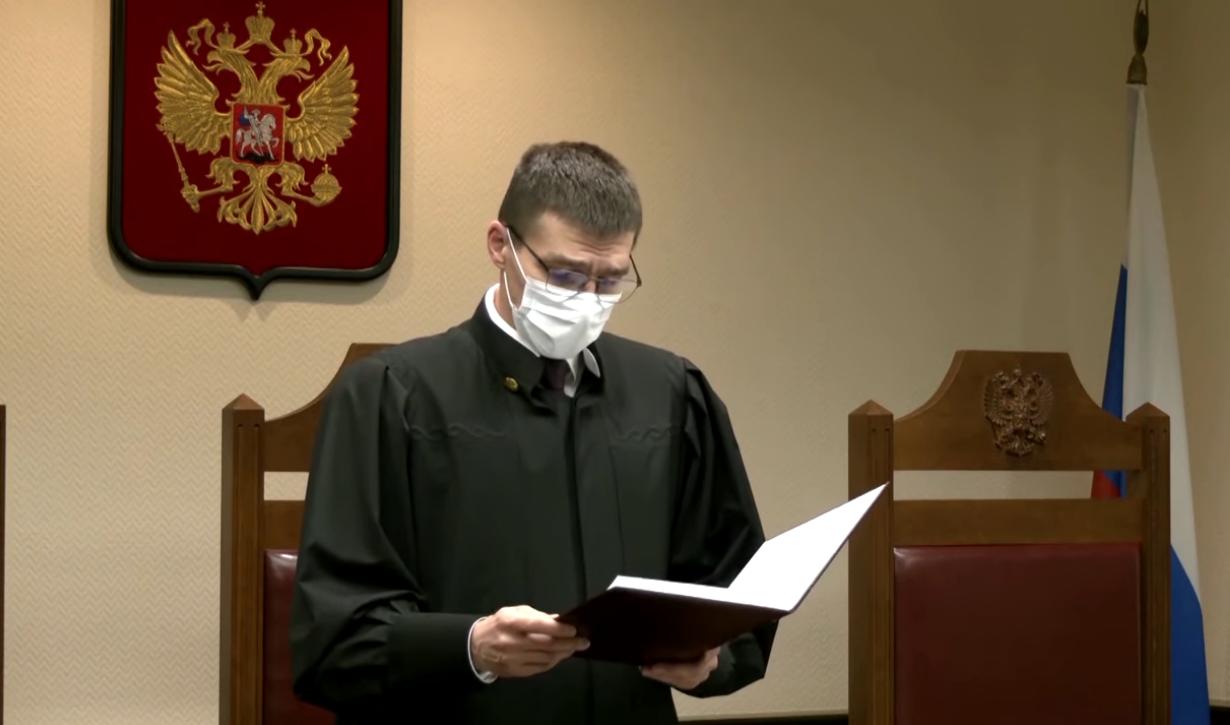
Russia’s Supreme Court this past week ruled that “the international LGBTQ movement” is “extremist” which, legal experts and human rights advocates say will lead to all LGBTQ groups and organizations in Russia being banned.
The Russian Justice Ministry had lodged an administrative legal claim with the High Court to recognize the International LGBTQ public movement as extremist and ban its activity in Russia. Justice Minister Konstantin Chuychenko did not specify whether it was seeking the closure of any specific groups or organizations, or if the designation would apply more broadly to the LGBTQ community, causes and individuals.
Speaking with Agence France-Presse, the head of the Sphere human rights group, which advocates for the Russian LGBTQ community, had criticized Chuychenko‘s actions.
“Russian authorities are once again forgetting that the LGBTQ+ community are human beings,” said Sphere head Dilya Gafurova, who has left Russia.
Authorities “don’t just want to erase us from the public field: They want to ban us as a social group,” Gafurova told AFP. “It’s a pretty typical move for repressive non-democratic regimes — the persecution of the most vulnerable. We will continue our fight,” he added.
UN High Commissioner for Human Rights Volker Türk in a statement issued from Geneva after the ruling said:
“This decision exposes human rights defenders and anyone standing up for the human rights of LGBT people to being labeled as ‘extremist’ — a term that has serious social and criminal ramifications in Russia,” said Türk. “No one should be jailed for doing human rights work or denied their human rights based on their sexual orientation or gender identity.”
“I call on the Russian authorities to repeal, immediately, laws that place improper restrictions on the work of human rights defenders or that discriminate against LGBT people. The law must uphold and defend the principles of equality and non-discrimination. The law must never be used to perpetuate inequality and discrimination,” Türk added.
Laws that must be reformed include those prohibiting gender-affirming medical and administrative procedures, and banning so-called “LGBT propaganda,” which made it illegal to discuss LGBT issues in Russia on penalty of substantial fines, Türk said.
The Türk also pointed out the wide use of the “extremist” label is more generally used to prosecute all those perceived as opponents, including politicians, journalists, human rights defenders and others.
“LGBTIQ people exist in every country, and a legal ban on the undefined ‘international LGBT movement’ will result in more violence, discrimination, and isolation of LGBTIQ people in Russia, who are already targeted for being who they are,” said Maria Sjödin, executive director of Outright International.
“Russia, which has already restricted access to information about LGBTIQ issues, is yet again violating the human rights of LGBTIQ people by restricting freedoms of association and expression. This is a great concern not just for human rights defenders focused on protecting the rights of LGBTIQ people but for everyone who believes in human rights for all,” Sjödin added.
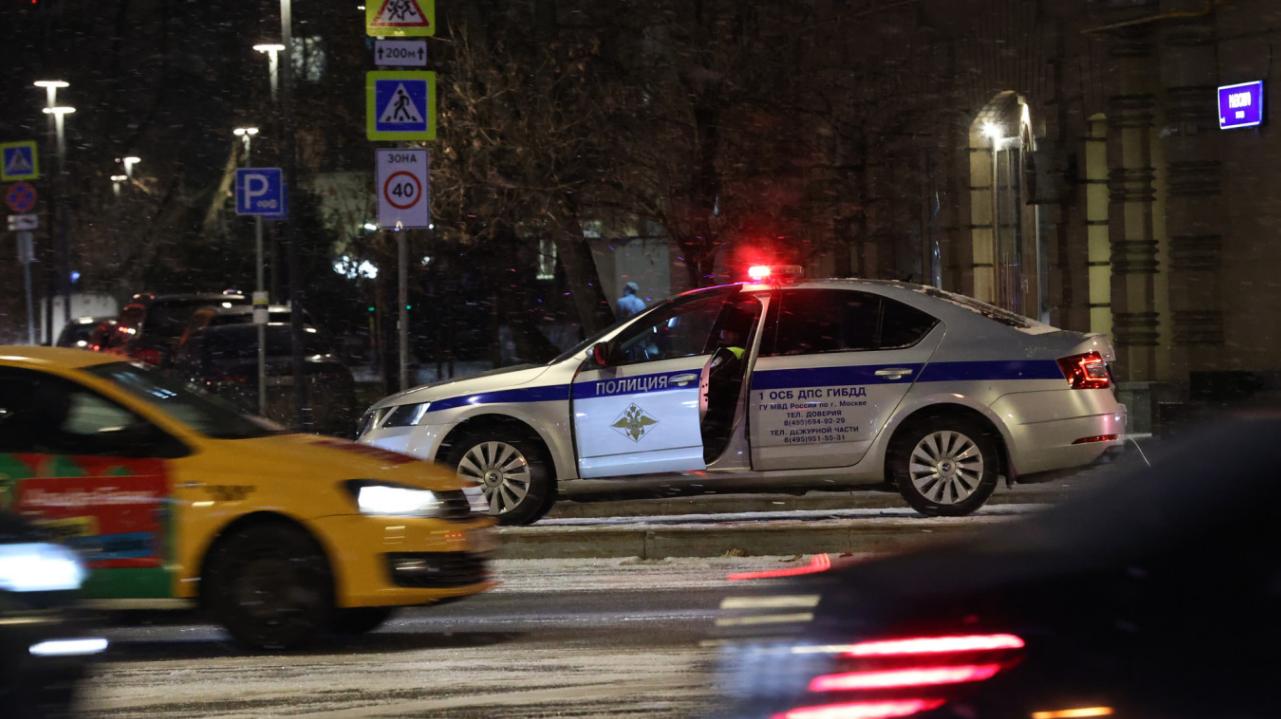
Within 48 hours of the High Court’s ruling, multiple Russian Law enforcement agencies executed a series of raids multiple queer venues in the Russian capital. At one club located on Ulitsa Malaya Yakimanka Street in the center of Moscow, there were approximately 300 people gathered when Russian security forces burst in under the pretext of searching for drugs in the establishment. Several persons were detained.
“In the middle of the party, they stopped the music and began to enter the halls [the police]. There were also citizens of other countries at the party. At the exit, they photographed passports without permission to do so,” an LGBTQ rights activist who had previously spoken to other media outlets told the Washington Blade in a phone call Sunday.
The raids took place in at least four venues, and were reportedly expected by the clubs management and owners.
Security forces arrived at an establishment near the Avtozavodskaya metro station and a themed strip club for men near the Polyanka metro station in central Moscow. The administration of the clubs warned visitors about the events in advance, the Moscow Times reported.
According to an eyewitness to the police raid on Mono, a bar also located in the city’s central district on Pokrovsky Boulevard, “there was the usual party, then the owner came out and said that within an hour law enforcement would arrive in connection with the recent ruling by the Supreme Court. Within 20 minutes the dance floor started to empty,” Ostorozhno Novosti, an independent Russian news outlet reported.
The Moscow Times could not independently verify Ostorozhno Novosti’s reporting, and employees from at least two of the clubs believed to have been targeted on Friday denied the reports, which they called “fakes.”
“I wake up … and I’m reading the news, and, of course, it’s hilarious. Where was [this raid] when we had nothing going on?” the manager of the club Mono said in a video posted on social media Saturday.
The Blade has also been unable to verify Ostorozhno Novosti’s reporting on the Mono bar raid but in a series of phone calls and Telegram chats was able to determine that multiple raids had in fact taken place across central Moscow and that gay clubs and LGBTQ safe spaces were targeted.
In the Baltic city of St. Petersburg, the largest gay club, Central Station, according to independent news outlet Sota, reported the club’s management said that they were denied further rental of the site due to the “new law.”
Additional reporting from Pahichan Media, the South China Morning Post, Human Rights Watch, The BBC, PinkNewsUK, Agence France-Presse, The Moscow Times, GCN Ireland, the Vatican News and the Associated Press.
Australia
Lesbian tennis player from Russia defects to Australia
Daria Kasatkina has publicly criticized war in Ukraine

A Russian tennis player who came out as a lesbian and publicly criticized her home country’s war against Ukraine has defected to Australia.
“My application for permanent residency has been accepted by the Australian government,” said Daria Kasatkina in an Instagram post on March 28. “Australia is a place I love, is incredibly welcoming and a place where I feel totally at home. I love being in Melbourne and look forward to making my home there. As part of this, I am proud to announce that I will be representing my new homeland, Australia, in my professional tennis career from this point on onwards.”
The Telegraph reported Kasatkina in 2023 said she left Russia because she did not feel safe “as a gay person who opposes the war.” Kasatkina’s partner is Natalia Zabiiako, a Russian Olympic figure skater who was born in Estonia.
“Obviously, there are parts of this decision that have not been easy,” said Kasatkina in her Instagram post. “I want to express my thanks and gratitude to my family, coaches, and everyone who has supported me throughout my tennis journey to date.”
“I will always have respect and fond appreciation for my roots, but I am thrilled to start this new chapter in my career and my life under the Australian flag,” she added.
Argentina
LGBTQ seniors in Argentina face uncertain future
President Javier Milei’s policies have disproportionately impacted retired pensioners

Editor’s note: International News Editor Michael K. Lavers will be on assignment in Argentina and Uruguay through April 12.
Argentina has undergone significant changes in its economic and social policies since President Javier Milei’s inauguration in December 2023. These changes have had a significant impact on various sectors of society, especially retirees and the LGBTQ community.
Mercedes Caracciolo, a 79-year-old sociologist and lesbian activist, shared her experience with the Washington Blade on how the new measures have affected her quality of life.
“Since Milei’s arrival in government, which began with a brutal devaluation, I am more careful in my spending than I was before,” she said.
Although Caracciolo has additional income from rental properties, she recognizes the situation is much more critical for those who exclusively depend on a pension.
With more than 7 million people receiving pensions, many find themselves “scratching the poverty line” due to the loss of purchasing power. The libertarian government’s economic policies have drastically affected their welfare, leading to a wave of protests across the country.
The reduction of social programs and the lack of LGBTQ-specific public policies have deepened the difficulties that seniors already face. The loss of economic stability particularly affects those who have historically lived on the margins, with fewer job opportunities and limited access to a decent retirement. Many older LGBTQ people, who have spent their lives unable to form traditional families, now find themselves without a support network and with an increasingly less present State.
The advance of conservative discourses has also generated a climate of insecurity and fear.
“There is no more sense of security and stability in old age,” Graciela Balestra, a psychologist who is the president of Puerta Abierta a la Diversidad, the first home for LGBTQ seniors in Argentina, explained. “Many LGBTQ+ retirees fear that there are fewer and fewer rights. They see what is happening in Argentina and globally with the advance of the right wing, and they feel that what they worked so hard to achieve is in jeopardy.”
In addition to economic difficulties, the LGBTQ community has faced additional challenges.
Caracciolo noted many supportive spaces have had their government subsidies reduced or eliminated, weakening community networks essential to the well-being of LGBTQ seniors.
“Community networks are also weakened because many of them require state support for certain types of expenses,” she noted.
Balestra warned about the psychological impact.
“Obviously it impacted mental health. There is much more anxiety, there is fear. People who say ‘I’m afraid they’ll kill me’ or ‘I’m afraid to show myself,'” she said. “Before, they used to walk down the street holding hands with their partner, and now they don’t do it anymore. A lot of hopelessness.”
For Balestra, the concern goes beyond the LGBTQ community.
“The economic issue, the rights issue, the fear that something similar to the dictatorship will return. All of this is very scary. And besides, the hopelessness of believing that this is going to continue, that it is not going to change even in the next elections,” she said.
Civil society organizations have denounced an “adjustment” in policies related to gender and diversity that Milei’s government has undertaken. Pride marches in Argentina have become a stage for protests against the president’s policies, especially over his speeches that activists consider hateful towards the LGBTQ community.
Balestra stresses the fear is not only individual, but collective.
“Human rights no longer exist anywhere, women no longer have the place they used to have, they are once again objectified, machismo is on the rise again,” she said. “This brings a lot of despair to older people.”
Despite the climate of uncertainty, Balestra emphasizes resistence forces are still in force.
“We continue working, as always,” she said. “For 25 years at Puerta Abierta we have been doing reflection groups, cultural workshops, social meetings, all with respect to being able to make LGBT people aware of their rights. We never stop meeting, but lately we are talking more and more about these things that we had already left a little behind. The issue of coming out, fear, visibility. Now we have to talk about it again.”
Africa
Report: Anti-LGBTQ discrimination has cost East African countries billions
Open for Business highlights Kenya, Uganda, Tanzania, and Rwanda

The economies of four East African countries are losing more than $5 billion a year because of discrimination against LGBTQ people.
The 80-page report that Open for Business, a coalition of leading global organizations that champion LGBTQ inclusion, released in late March focuses on Kenya, Uganda, Tanzania, and Rwanda. It attributes the losses to anti-homosexuality laws, and predicts more economic costs if lawmakers implement other harsh anti-LGBTQ measures.
The report notes Uganda is losing $2.4 billion, or 5.2 percent of its GDP, annually because of the Anti-Homosexuality Act that took effect in 2023. Open for Business last October revealed the country had already lost $1.6 billion in foreign direct investment, donor aid, trade, tourism, public health and productivity after President Yoweri Museveni signed the law.
Kenya is losing $1.5 billion, or 1.38 percent of its GDP.
The report warns that enacting the pending Family Protection Bill would cost the country an additional $6.3 billion, or 5.8 percent of its GDP, annually. Opposition MP Peter Kaluma, who has introduced the measure, in January claimed the Biden-Harris administration had blocked it and vowed to have fellow MPs pass it after U.S. President Donald Trump’s inauguration.
Kaluma is a strong supporter of Trump and the Republican Party’s opposition to LGBTQ rights and other far-right conservative ideologies.
Tanzania is losing $1.1 billion, or 1.33 percent of its GDP, because of anti-LGBTQ discrimination. Rwanda is losing $45 million, or .32 percent of its GDP.
Homosexuality is not illegal in Rwanda unlike the other three countries, but consensual same-sex sexual relationships remain taboo. Queer Rwandans also face stigma, discrimination, social exclusion, and arbitrary detention.
“A series of private member bills in Uganda, Kenya, and Tanzania have threatened to pull the region back in terms of progress and human rights for LGBTQ+ people, and damage both the ease of doing business and their international reputation,” states the Open for Business CEO Dominic Arnall.
Arnall notes his organization’s extensive engagement with businesses across East Africa over the last five years has always linked harmful anti-LGBTQ laws to impacts on a country’s investment prospects.
“The finding lays bare an uncomfortable truth: That laws that harm the LGBTQ+ community are standing in the way of prosperity and growth for all citizens in the region,” he said.
The report calls for LGBTQ inclusion as part of the region’s broader economic development agenda.
The Open for Business report notes anti-gay violence and discrimination in Tanzania has been on the rise since the late-President John Magufuli came to power in 2015. The country’s punitive anti-homosexuality law with a 30-year prison sentence for consensual same-sex sexual relations was already in place, but queer Tanzanians were generally not systematically targeted.
“Reporting of neighbors or community members for suspected homosexuality is frequent and law enforcement officers have been known to pose as members of the LGBTQ+ community to entrap and blackmail LGBTQ+ individuals,” states the report.
It also notes the Tanzanian government’s crackdown on websites and social media accounts that promote LGBTQ rights and threatening the arrests of administrators who allow such content. The report concludes this suppression has caused queer people to live in fear and isolation.
Religious organizations, particularly Christian churches in Tanzania, also champion anti-LGBTQ rhetoric by encouraging their followers against tolerating homosexuality and transgender people. Politicians, meanwhile, use anti-LGBTQ narratives to gain support during campaigns.
While Rwanda stands out as the only East African country in which homosexuality is not criminalized and has foreign donors implementing programs that target the queer community, discussing LGBTQ rights in public is rare and same-sex relationships are not legally recognized. The Open for Business report notes this situation creates legal ambiguity and a fragile social environment for queer Rwandans.
“Several LGBTQ+ rights organizations have emerged in recent years, mostly in Kigali, although they do not always identify themselves as LGBTQ+ associations and are rarely formally registered, making it difficult for them to receive funding,” reads the report.
The Rwandan government has rejected calls to criminalize homosexuality, which it considers a “private matter.” It has also been adamant against efforts to protect queer people for fear of domestic opposition and a desire not to politicize the issue like in neighboring countries.
Kenya, like Rwanda, has for a long time been considered more receptive of queer people, “as long as LGBTQ members are not ‘too loud.’”
Anyone convicted under Kenya’s colonial-era sodomy law could face up to 14 years in prison. Efforts to enact a harsh anti-homosexuality law and anti-LGBTQ protests that religious leaders, politicians, and activists have organized have increased homophobia in the country.
“LGBTQ individuals report significant difficulties in securing formal employment, which pushes many of them into more precarious livelihoods in the informal sector,” states the report.
-

 Movies2 days ago
Movies2 days agoSexy small town secrets surface in twisty French ‘Misericordia’
-

 Federal Government3 days ago
Federal Government3 days agoMass HHS layoffs include HIV/AIDS prevention, policy teams
-

 Maryland4 days ago
Maryland4 days agoAt transgender visibility celebration, Moore called out for lack of action
-

 Arts & Entertainment4 days ago
Arts & Entertainment4 days ago‘Think of those who have not been seen,’ Cynthia Erivo’s powerful message at GLAAD Awards



